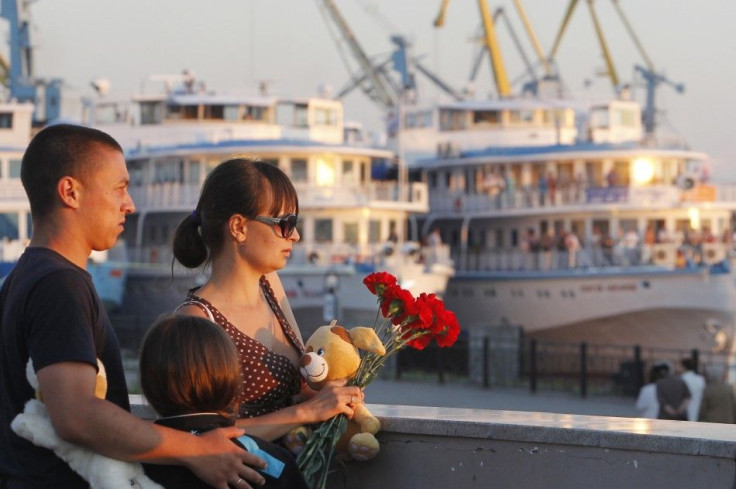Arrests in Russian Boat Tragedy Won't Help Prevent More Disasters

The Russian government is already holding people responsible for the sinking of river cruise-boat The Bulgaria, just three days after at least 100 people died in the Volga River.
A court in Kazan, the city nearest to the vessel when it sank, ordered the arrest of two people related to the accident, making good on President Dmitri Medvedev's promise to bring swift justice to perpetrators of the tragedy.
Russian river fleet regulator Yakov Ivashov and Svetlana Inyakina, general director of Argorechtur, the cruise company, now face charges relating to the sinking that has shocked and saddened Russia.
Both are being charged with negligence and face up to ten years in prison.
It is widely believed that the Bulgaria sinking was the result of poor boat maintenance and the use of outdated equipment. The boat was built in 1955, and all of its parts were from the Soviet era. It was likely that a lack of regulation and safety inspections caused the deaths of up to 120 people.
One of the boat's engines was under-powered before the 56-year-old vessel set sail, so when wind and choppy waters turned the boat sideways -- a dangerous position for any boat to be in -- the captain was unable to right the ship before it tipped.
Negligence and antiquated vehicles are rampant in the Russia tourism industry, and are not exclusive to cruise lines. The airline industry still uses many Soviet-era jets and planes, and flights have sadly ended in tragedy on numerous occasions.
Medvedev and his transportation minister Igor Levitin are also looking to hold two ship captains responsible for not saving drowning vacationers.
According to preliminary information, at about the same time [the Bulgaria sank], two vessels passed. We know the ships and the captains' names. They are being questioned in the cities where they are presently located. We will use all legal measures in order to give [the captains] the maximum punishment, Levitin said.
Similar to another recent tragedy -- the Monday crash of a Soviet-era plane -- the government might pay victims and family members for their loss.
The Information Telegraph Agency of Russia is claiming that the Russian government will pay out 300,000 rubles to the families of victims of the sinking, and up to 100,000 rubles for injuries.
But are these payments anything more than hush money? Arrests and reparations are a positive measure and will surely make people in Russia feel better, but they will do little to prevent further accidents.
According to Russia's Transportation Ministry, about six percent of operating vessels in Russia are as old or older than the Bulgaria, meaning that more than 100 of the registered 1500 passenger boats are older than 56 years. That figure does not account for unregistered boats.
Hopefully imprisoning tour owners who trade safety for profit will deter others from doing the same, but until Russia gets a proper regulatory system in place, there will be more disasters.
Medvedev recently decided to tackle the airplane problem head-on, saying that he wants all Soviet Antonov An-24s retired. The last An-24 was made in 1979.
But there is still the Tupolev family of jets, which are slightly newer but equally dangerous. The Tu-154's were first introduced in 1972. They have been involved in 15 crashes since 2000. Last month, a RusAir Tupolev-134 jet went down, killing 47 people, and last April a Tu-154 crash, killing Polish President Lech Kaczynski and 95 others.
Ironically, improper inspections did result in a saved life on Sunday. When the Bulgaria capsized, one family was able to escape through a faulty porthole.
Perhaps our good luck was that the window in our cabin was faulty. When it began raining the guys tried to close it, but their attempts failed, Gulnaz Minnekhaerova told Russian news agency RIA Novosti.
If the water had not come through the window, the cabin would have been flooded with water from the corridor and we would have drowned.
© Copyright IBTimes 2024. All rights reserved.





















